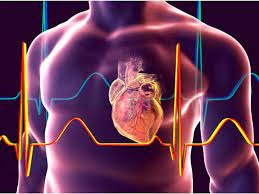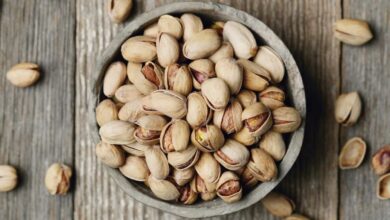Patients suffering from heart attacks should avoid consuming this dish since it serves as poison
To support heart health and general well-being, it’s important to make quick dietary modifications if you or someone you love has recently had a heart attack. We will clarify which meals heart attack sufferers should entirely avoid in our extensive guide. These dietary adjustments may actually save your life.
Diet’s Effect on Heart Health
Let’s talk about why nutrition is so important for heart attack survivors before we get into the list of things to avoid. Managing risk factors including high blood pressure, high cholesterol, and excess body weight—all of which may lead to heart disease—is mostly dependent on your nutrition.
The Value of a Diet Good for the Heart
Not only is a heart-healthy diet advised, but for people who have had a heart attack, it is a lifesaver. Your food decisions may have a significant and wide-ranging effect on your lifespan and general quality of life. Let’s examine the many reasons why eating a heart-healthy diet is so crucial.
1. Decrease in Repeat Heart Attacks
Lowering the risk of further heart attacks is one of the main goals of a heart-healthy diet. Foods have a direct impact on blood pressure, cholesterol, and inflammation, all of which may either help or hurt heart health.
2. Reducing Cholesterol and Blood Pressure
Elevated blood pressure and cholesterol are often identified as contributing factors to heart disease. Both of these risk factors may be considerably reduced by eating a heart-healthy diet, which aids in the preservation of a robust cardiovascular system.
Third, Handling Diabetes
Diabetes affects a large number of heart attack victims. A well thought-out diet may successfully control blood sugar levels and lessen the difficulties related to diabetes.
4. Supporting Healthy Weight Loss
Heart disease is significantly influenced by obesity. You may attain and maintain a healthy weight by adhering to a heart-healthy diet, which is essential for heart health.
Things Not to Eat
Now that we know how important a heart-healthy diet is, it’s time to carefully consider which foods you should be serving instead of others. These are the ones that cause individuals to have heart attacks by acting as poison.
Trans Fats 1.
One of the biggest enemies of heart health is undoubtedly trans fats. These synthetic fats possess the devilish capacity to increase your levels of bad cholesterol (LDL) and decrease your levels of good cholesterol (HDL). The following are some well-known sources of trans fats that you should avoid:
– Quick Service Items
Fast food restaurants are well known for using trans fats excessively. You can’t have those delicious fries and crunchy fried chicken like you used to.
– Concealed Food
Heart attack survivors shouldn’t eat their favorite packaged foods, including chips and crackers, since they often contain trans fats.
2. Fats Saturated
Even though they are not as harmful to heart health as trans fats, saturated fats are nonetheless dangerous enemies. After a heart attack, you don’t want your LDL cholesterol levels to rise, which is something they may do. Be wary of the following sources of saturated fat:
– Fatty cuts of red meat, in particular
It’s possible that those tender lamb chops and marbled steaks may have to go from being daily mainstays to seldom luxuries.
– Dairy Products with Whole Fat
Foods high in saturated fat, such as cheese, butter, and other full-fat dairy products, should be eaten in moderation.
3. Salt, or Sodium
Sodium, which is often included in table salt, is essential for controlling blood pressure. Consuming too much salt raises the risk of hypertension, which is a major cause of heart disease. Watch careful for the salt content of the following foods:
– Soups and broths in cans
Convenient canned broths and soups may pack a lot of salt. Choose salt-free or low-sodium varieties.
– Meat Products
Processed meats like sausages, bacon, and others are high in salt. Heart attack sufferers should use caution while consuming these high-sodium foods.
4. Sugar Additives
Added sugars are sneaky enemies that have the potential to seriously harm your health. They are a part of diabetes and obesity, two conditions that increase the risk of heart disease. This is the location of added sugars:
– Sugary drinks and sodas
When it comes to additional sugars, soda, energy drinks, and sweetened beverages are among the biggest offenders. Take them out of your diet completely.
– Sweets & Candies
Candy, chocolates, and other sweets should no longer be consumed on a regular basis; instead, they should be indulged in sometimes.
5. Meat Products
In addition to being high in salt, processed meats also have saturated fats. For those who have had a heart attack, they pose a dual risk. The following processed meats should be noted:
– Dogs, hot
Although they are popular, hot dogs are harmful. They’re not appropriate for heart-healthy diets because of their excessive salt and saturated fat levels.
– Deli meats, such as salami and ham
Deli meats, which are often used in sandwiches, are also to blame. Choose leaner options such as chicken breast or turkey.
healthy substitutes
Now that we know which meals to avoid, it’s time to look at the better options that will support heart health and your recuperation.
1. Vegetables and Fruits
A diet rich in fruits and vegetables is the foundation of heart health. They are abundant in dietary fiber, vitamins, minerals, and antioxidants.
– Vibrant Variety
Try to eat a wide range of vibrant fruits and vegetables. Different sets of antioxidants and nutrients are represented by each hue. There are several options, ranging from colorful berries to lush greens.
2. Complete Grain
Compared to their refined cousins, whole grains are nutritional powerhouses, providing higher levels of fiber and minerals.
– Rice, brown
Replace white rice with brown rice for a healthier option. It is more nutritionally dense and less processed.
The Quinoa
A versatile whole grain that is high in fiber and protein, quinoa is a great option for those who have had a heart attack.
– Bread made with wheat
Choose whole wheat breads while making your purchases. They provide you fiber and other nutrients that keep your heart healthy.
3. Trim Meats
For general health and muscle regeneration, protein is necessary. But not every source of protein is made equal. Heart attack victims need to concentrate on lean choices.
– Skinless Chicken
Skinless chicken and turkey are lean protein sources that may be cooked in a variety of heart-healthy ways.
– Fish
Omega-3 fatty acids, which are great for heart health, are abundant in fatty fish, such as salmon, mackerel, and sardines.
– Plants
Legumes, such as beans and lentils, are rich in fiber and other vital elements in addition to protein.
4. Nutritious Fats
Not all fat is unhealthy for you. An essential component of a diet for heart health is healthy fats.
– Avocado
Monounsaturated fats, which may help decrease harmful cholesterol levels, are abundant in avocados.
– Seeds and Nuts
You may include foods high in healthy fats, such as flaxseeds, chia seeds, walnuts, and almonds, in your diet.
5. Sodium-Free Choices
A key component of a diet that promotes heart health is lowering salt consumption. When feasible, use options with less salt.
Examining Labels
When you go grocery shopping, be sure to carefully read food labels to choose items that are salt-free or low in sodium.
– Condiments and Sauces
Take note of how much salt is in sauces and condiments. Seek for ones that are reduced in salt or think about preparing one at home.
Tips for Meal Planning
A big change can be altering your diet. Here are some meal planning suggestions for heart attack victims to help make these dietary modifications more feasible and long-lasting:
Examine food labels.
Learn to read food labels like an expert. Check the amount of trans fat and salt in the goods you buy, and make heart-healthy choices.
– Free of Trans Fat
Make sure the goods you choose are marked as “trans fat-free.” This suggests that their trans fat content is low or nonexistent.
2. Home-Cooking
You have total control over the items you use while cooking at home, which makes it simpler to choose heart-healthy solutions.
– Healthy Recipe Techniques
Instead of deep-frying or pan-frying, use culinary techniques like grilling, baking, steaming, and sautéing.
3. Speak with a Dietitian
Consult a qualified nutritionist for individualized dietary advice. They are able to design a customized plan that fits your requirements, tastes, and dietary constraints.
Formulating a Tailored Scheme
A nutritionist will design a personalized meal plan based on your dietary preferences and medical background. This tailored approach guarantees that you get the greatest advice available. In summary, the importance of your food choices cannot be emphasized, particularly for those who have had a heart attack. Your risk of further cardiac incidents may be greatly decreased by adding heart-healthy meals in place of those that function as poison to the heart. Recall that little adjustments may have a significant effect on your heart health. One meal at a time, begin your path to a healthy heart today.







